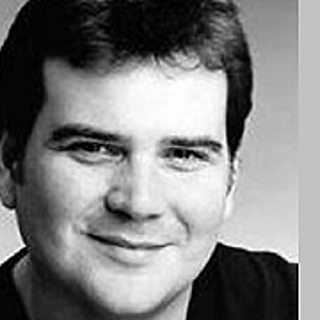How do you fit into the ����ý?
����ý Writers holds a unique position in the UK’s screenwriting landscape. Many members of the wider writing community are aware of us and some of the work we do; but when I am lucky enough to speak at public-facing events I’m often asked about how ����ý Writers – in practical terms – fits into ����ý Drama Commissioning and the wider ����ý. I hope I’ll be able to fill some of the gaps in people’s knowledge about us, how we fit in and what we can and can’t do when we work with writers.

So, how do you do that?
Our job is to work with emerging television writers and to engage with those whom we feel are starting to find their authorial voice and are ready to engage with the unique challenges of TV writing.
We look for people who can bring the best characters and stories to the screen and who are not shy of both challenging and entertaining the broad ����ý audience. We achieve this through our various groups and projects – e.g. Scripted (formerly known as Drama Room), he Writers’ Access Group, Voices or the Pilot Programme (formerly known as The TV Drama Writers Programme); and the majority of our writers come to our attention through our annual script submission window - Open Call – which is due to open between November 5th and December 3rd 2024.
We also try to ensure that we are across as much new writing as possible by attending plays, short films, script-readings, writing festivals and taking meetings with writers. To that end, the staff in each of our offices (Belfast, Cardiff, Glasgow, London, & Salford) is constantly engaging with the writers and writing in their particular area of the country. Each office is headed up by a Commissioning Executive or Development Executive whose brief is to work with and develop the talent in their local area and, at the same time, to work with their respective Drama Commissioning Editor to help early writers understand and shape what ����ý Drama might look like in future years.
In addition we aim to furnish early-career writers with the tools and opportunities to start focussing their writing and making their mark – be that in the form of online resources, writing opportunities or the ����ý Writers script library which allows the writer to read and enjoy over a thousand scripts across various media and drama genres.
How do the writers you work with get their scripts produced?
We always stress that in ����ý Writers, we develop writers, NOT projects.
Writers often think that when they send a script to us, we are reading it with the intention of making that specific script for broadcast. This is not the case. Although ����ý Writers sits within the Drama Commissioning department, we do not pitch projects to them. The Commissioning teams only consider ideas and scripts which come via production companies – either , or one of several independent drama companies. The Commissioning Editors take pitches from those production companies and make decisions on projects based on a combination of the idea, the writer and the company. They are assessed not just on the talent of the writer, but also the talent and track record of the people who will be responsible for making the show.
So, for example, if you have a drama series idea that you want to submit to the ����ý, you must first get a production company interested. If someone in that company – maybe a Head of Development or an Exec Producer – thinks it’s a great idea, and they believe you can write it, they will then work with you to develop the series, and to shape it to fit their knowledge of what the ����ý is looking for. You should start being paid once you are writing more than a one-page outline.
The company will then pitch it to a ����ý Commissioning Editor, who, if they like the project and believe in the talent of the writer and producer(s), will commission further paid development, including scripts. Eventually, if the development process creates a brilliant show, and the Drama Commissioner and Channel Controller believe it will work for our audience, and there is a slot for it, and funding is in place (including potentially a co-commission with another broadcaster), and great talent is attached by then, and all the pieces fall into place – then it will be ‘greenlit’: in other words, the commission will be confirmed, and the project will go into production. As you can see it’s a long, hard, competitive and – at times – frustrating road.
Does ����ý Writers help to forge relationships with production companies?
Yes. Independent production companies are always on the lookout for new talent capable of delivering original and exciting drama. For many companies and producers, just the knowledge that a writer has been selected for one of our development groups is sometimes enough to spark their interest in a particular writer. From our perspective, we aim for writers on our development programmes to have various levels of engagement with independent companies, dependent on the group they are in. For example, those on one of our Voices groups will start to become familiar with some indies and how they work; whereas writers on the Pilot Programme, which develops our most experienced writers, will work one-to-one with one of our indie production partners.
And how does that fit in with the rest of the ����ý?
UK-made Drama is a key component of the ����ý’s strategy to provide the licence-payer with the best in British screenwriting; and it is the job of ����ý Writers to ensure that the nation’s writers have the skills and knowledge to better approach their creative career. By providing writers with key skills and opportunities early in their career, we believe that we will be rewarded with excellent British drama in the future.
